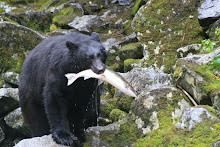 More than any country on Earth, Malawi’s character is predominantly defined by its major travel wonder, a large freshwater lake that runs almost the entire length (over 500 kilometres) of its eastern border and represents around 20 percent of its total area. The lake is extremely deep, sitting in a rift in the continental shelf.
More than any country on Earth, Malawi’s character is predominantly defined by its major travel wonder, a large freshwater lake that runs almost the entire length (over 500 kilometres) of its eastern border and represents around 20 percent of its total area. The lake is extremely deep, sitting in a rift in the continental shelf. Nicknamed the Lake of Stars, this majestic lake sets a photogenic scene. Sparkling in the bright sunny days, the sandy, palm-fringed beaches, towering baobab trees and small African villages of grass and mud huts contrast on a background of Mozambique’s mountains. Long tables of small fish bake dry in the sun outside the huts.
Nicknamed the Lake of Stars, this majestic lake sets a photogenic scene. Sparkling in the bright sunny days, the sandy, palm-fringed beaches, towering baobab trees and small African villages of grass and mud huts contrast on a background of Mozambique’s mountains. Long tables of small fish bake dry in the sun outside the huts. Most backpackers head for the southern end of the lake and Cape Maclear. With regular matola (trucks or vans with open backs piled high with up to fifteen or twenty people, the occasional chicken and bags of belongings) plying the route along a rough dirt tract, the cape is an idyllic beach location. With the hostels integrated into the local village and some places managed by Malawians, Cape Maclear has a more comfortable feeling of supporting and working with the local population.
Most backpackers head for the southern end of the lake and Cape Maclear. With regular matola (trucks or vans with open backs piled high with up to fifteen or twenty people, the occasional chicken and bags of belongings) plying the route along a rough dirt tract, the cape is an idyllic beach location. With the hostels integrated into the local village and some places managed by Malawians, Cape Maclear has a more comfortable feeling of supporting and working with the local population.  UNESCO-listed, this area of the lake is a National Marine Park. Walking a short way around to a rocky outcrop called Otter Point, the water is teeming with mbuna. Snorkelling reveals a dazzling display of blues, yellows and oranges as hundreds of these friendly small cichlids swarm, nibbling bread from your hand. Relaxing on the shore, otters can be seen floating on their back feasting on their quarry of shellfish.
UNESCO-listed, this area of the lake is a National Marine Park. Walking a short way around to a rocky outcrop called Otter Point, the water is teeming with mbuna. Snorkelling reveals a dazzling display of blues, yellows and oranges as hundreds of these friendly small cichlids swarm, nibbling bread from your hand. Relaxing on the shore, otters can be seen floating on their back feasting on their quarry of shellfish.
The mbuna are a freaky fish. Attracted to the brightest coloured male, the female lays her eggs and stores them in her mouth. On the male releasing his sperm, the female swoops through the water fertilising her eggs. The eggs stay in her mouth even after birth when the small fish stay inside this protective environment till large enough to fend for themselves. In this anniversary year of Darwin’s Theory of Evolution, the mbuna are also a lesson in evolution. Scientists have found that in different parts of the lake, the fish have evolved to suit their eating. Some have sharpened angular teeth to scrape algae off rocks while others have flat mouths to filter small marine life from the sandy lake bottom. Various others have adapted for their chosen diet of snails, fish or water plants, each with suitably evolved mouths and teeth.
In this anniversary year of Darwin’s Theory of Evolution, the mbuna are also a lesson in evolution. Scientists have found that in different parts of the lake, the fish have evolved to suit their eating. Some have sharpened angular teeth to scrape algae off rocks while others have flat mouths to filter small marine life from the sandy lake bottom. Various others have adapted for their chosen diet of snails, fish or water plants, each with suitably evolved mouths and teeth.
The sunrises and sunsets in this area are quite spectacular. Avoiding the heat of the day, sunset is a time of high activity. Local fishermen in dugout canoes cast nets while the women wash clothes and children at the water’s edge.
Lake of Stars continues.
Other African Posts
Real Africa? (Central African Republic)
The Great Congo River Journey (Congo)
Living on Stilts (Benin)
A Real Voodoo Experience (Benin)
African Top Ten Travel Wonders
Monday, May 11, 2009
Lake of Stars (Cape Maclear, Malawi) - Part One
Labels:
Africa,
Malawi,
natural wonders,
travel wonders,
UNESCO
Subscribe to:
Post Comments (Atom)


3 comments:
No need to paint pixture here, the pictures show another location of great unspoilt beauty.
I could definitely spend some time there. -A lovely setting with fascinating marine life! I'm curious about the water clarity? Is there decent visibility?
@martin: I hope it stays that way and doesn't get overrun with travellers but stays on a smaller scale.
@heather: Water clarity is very good. It is a popular dive location though not in my budget when I visited. People I chatted to who dived were delighted with what they saw and the way it was conducted.
Post a Comment